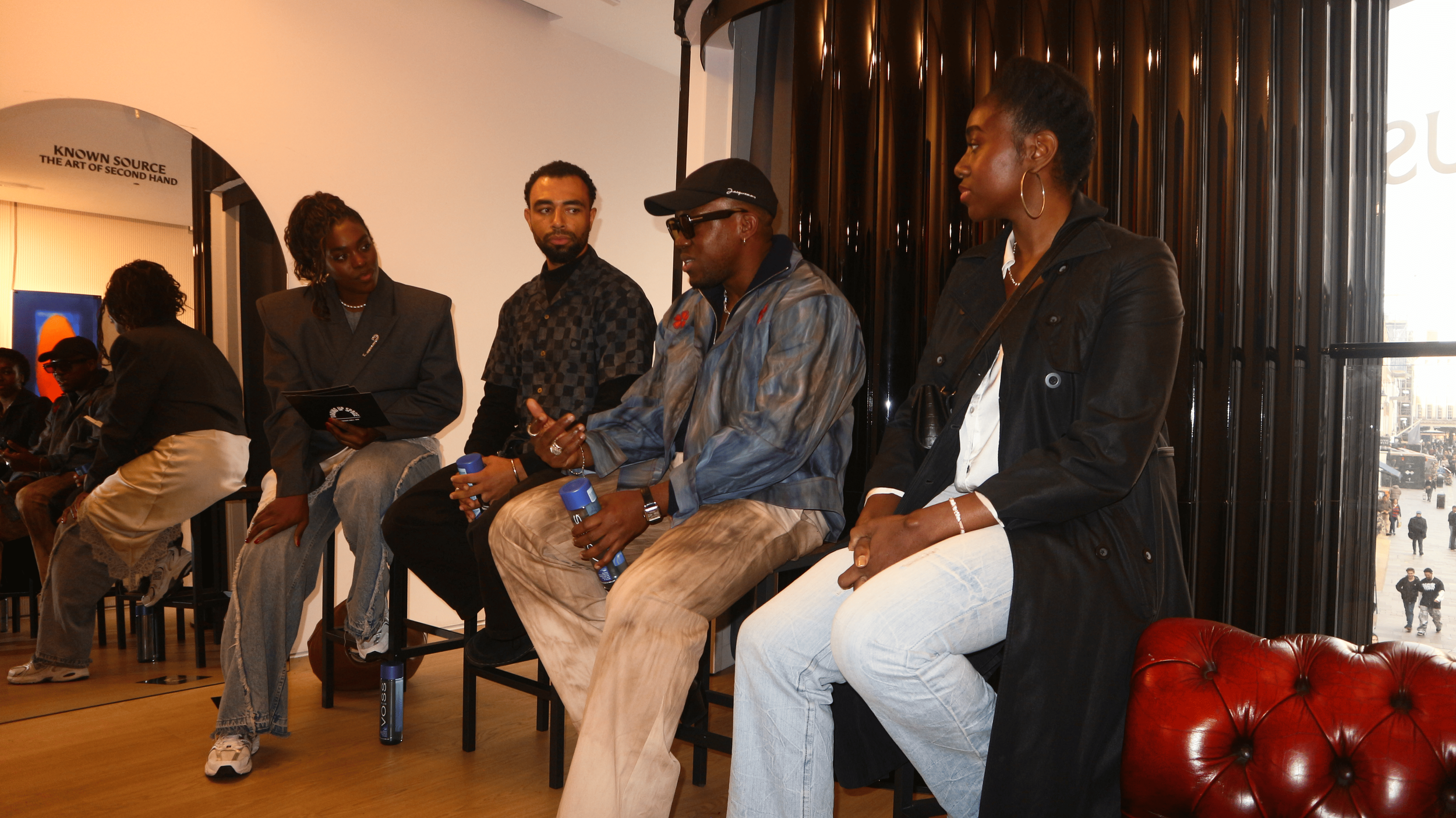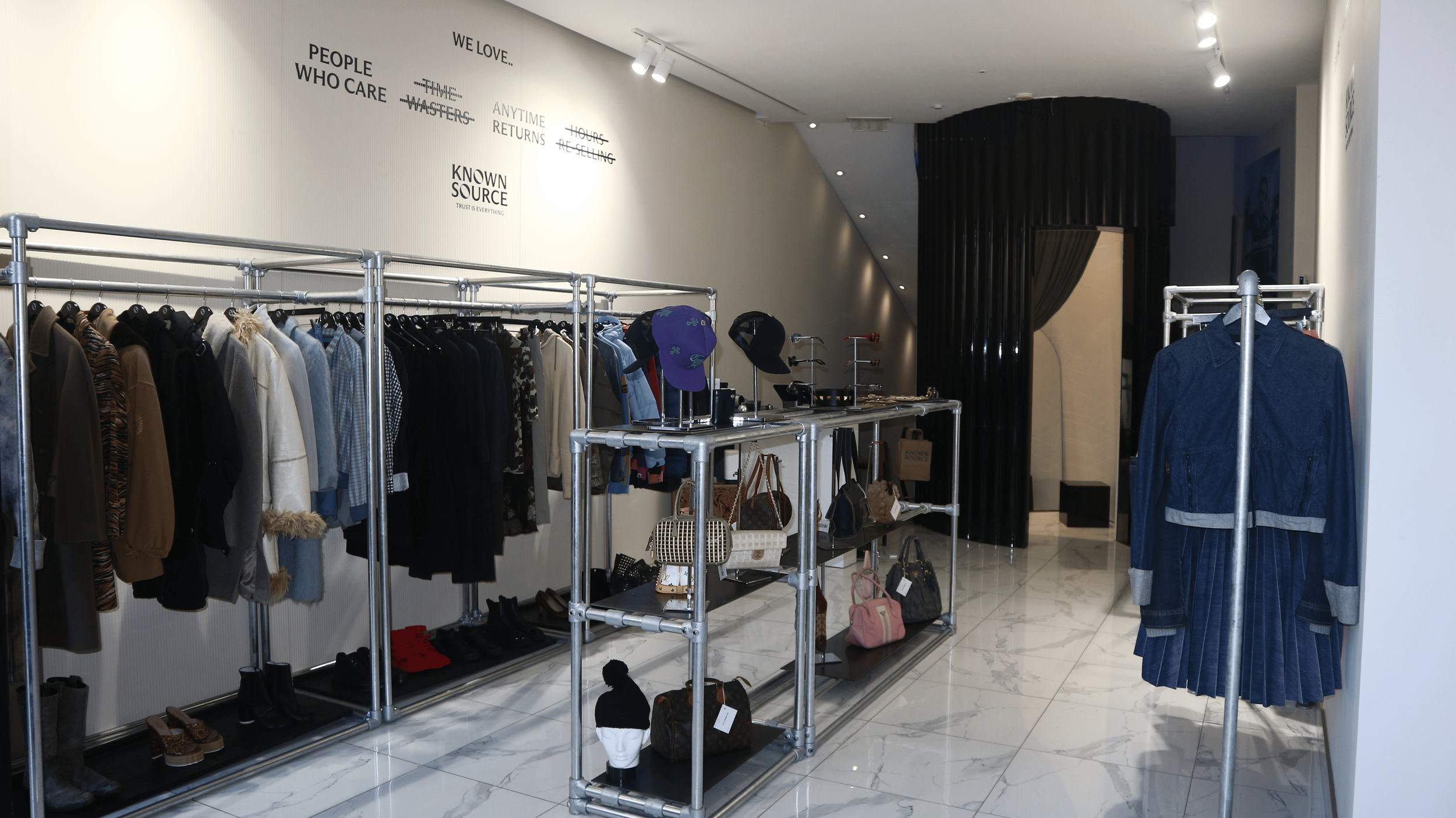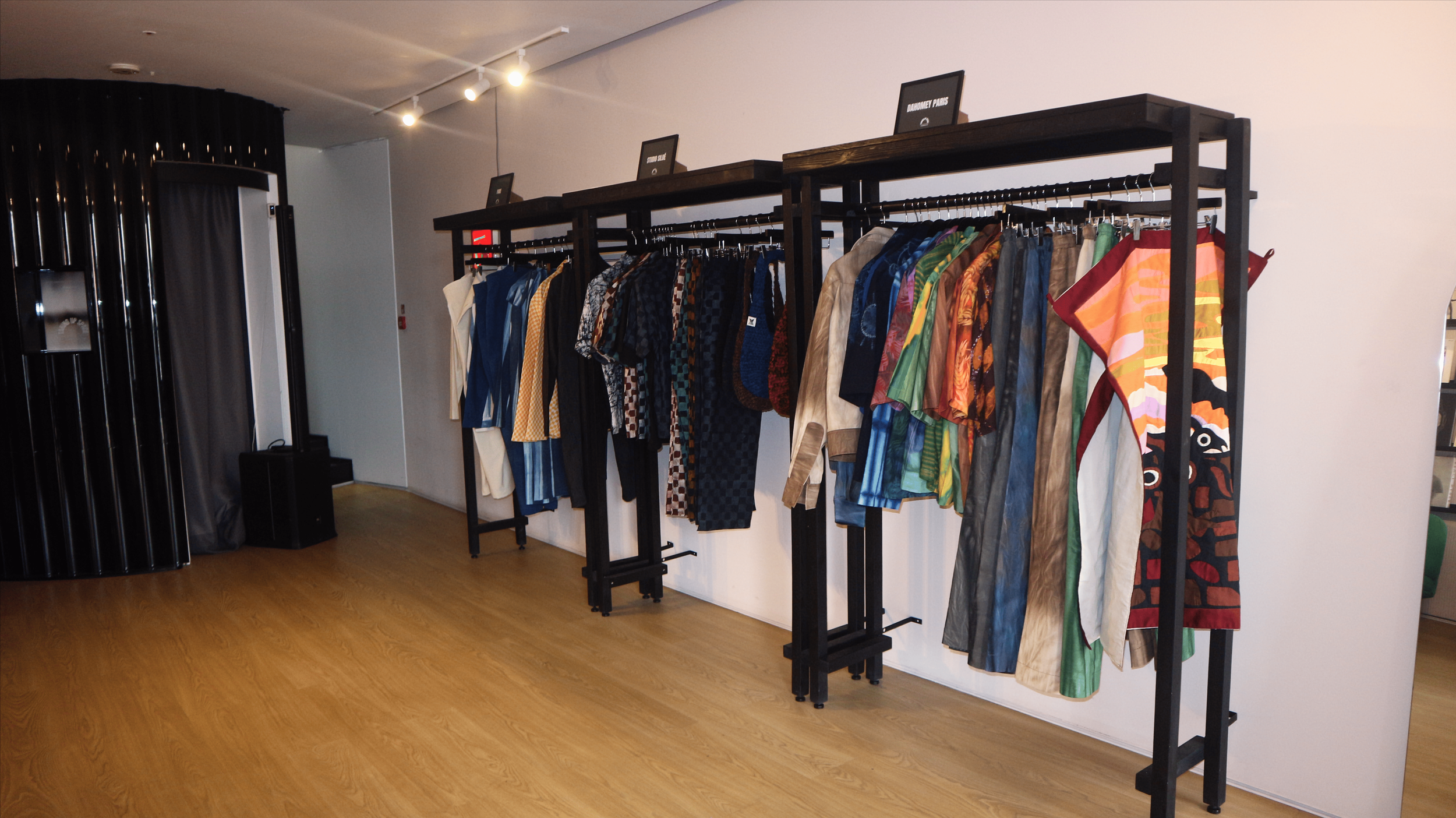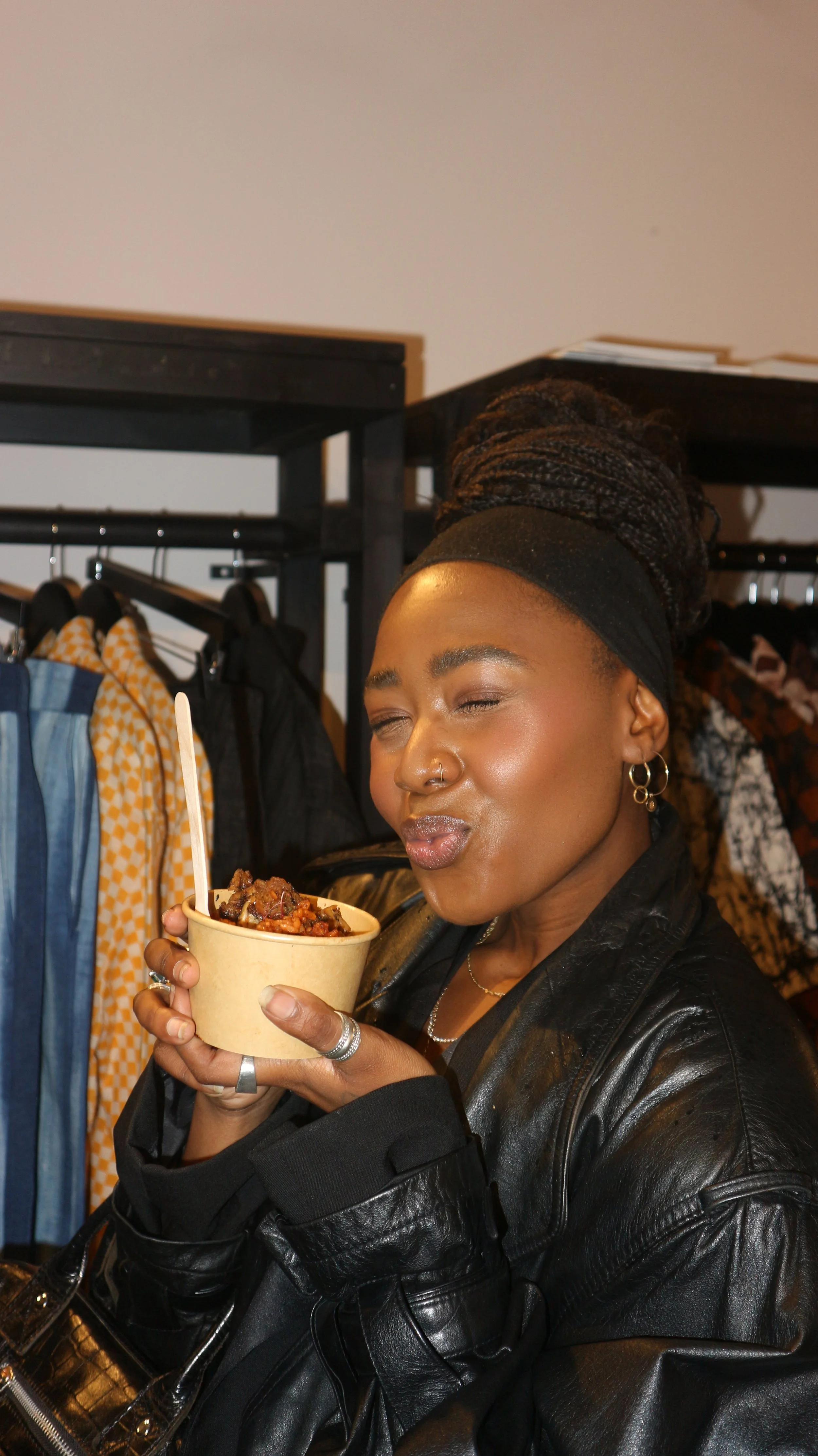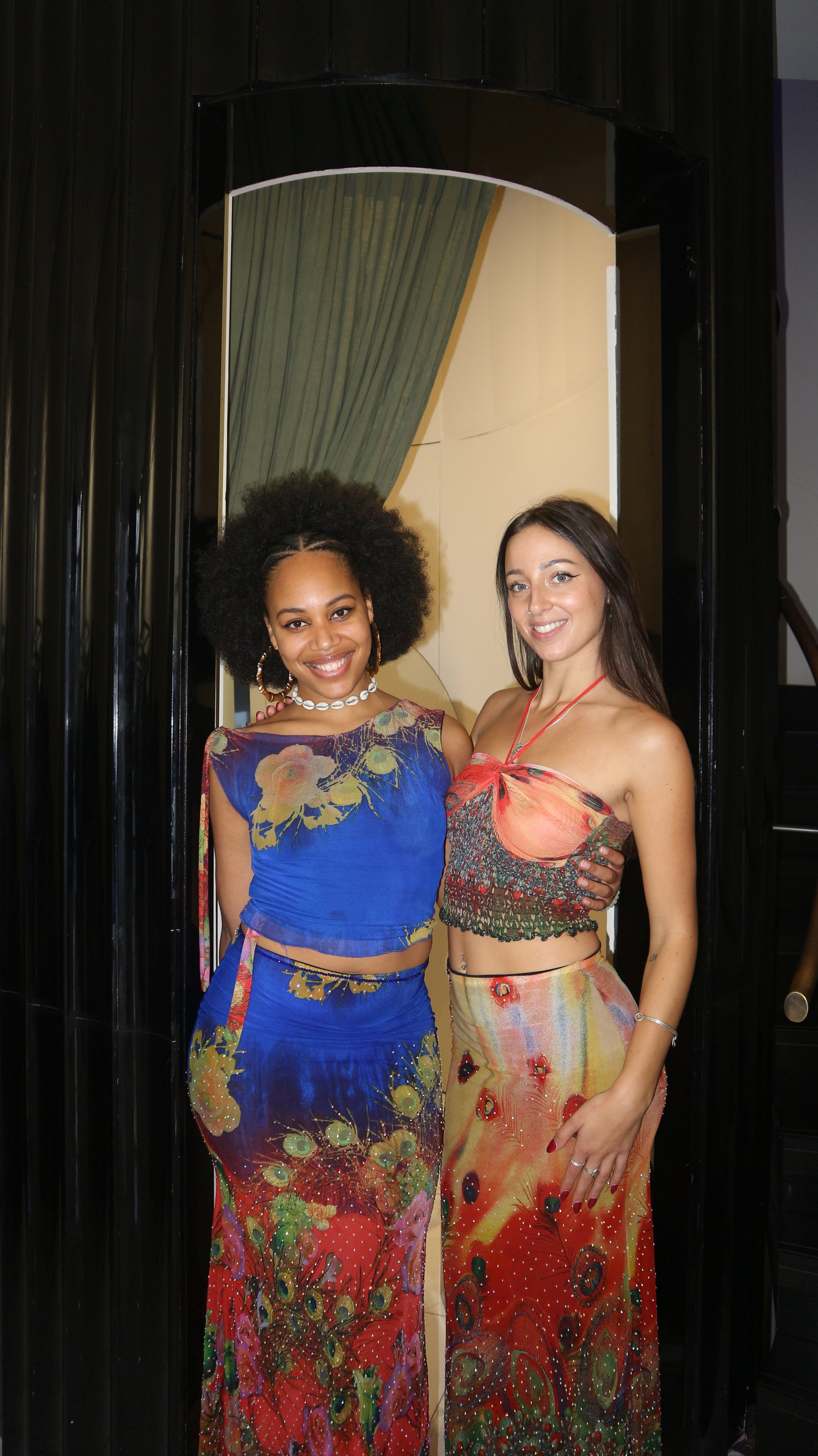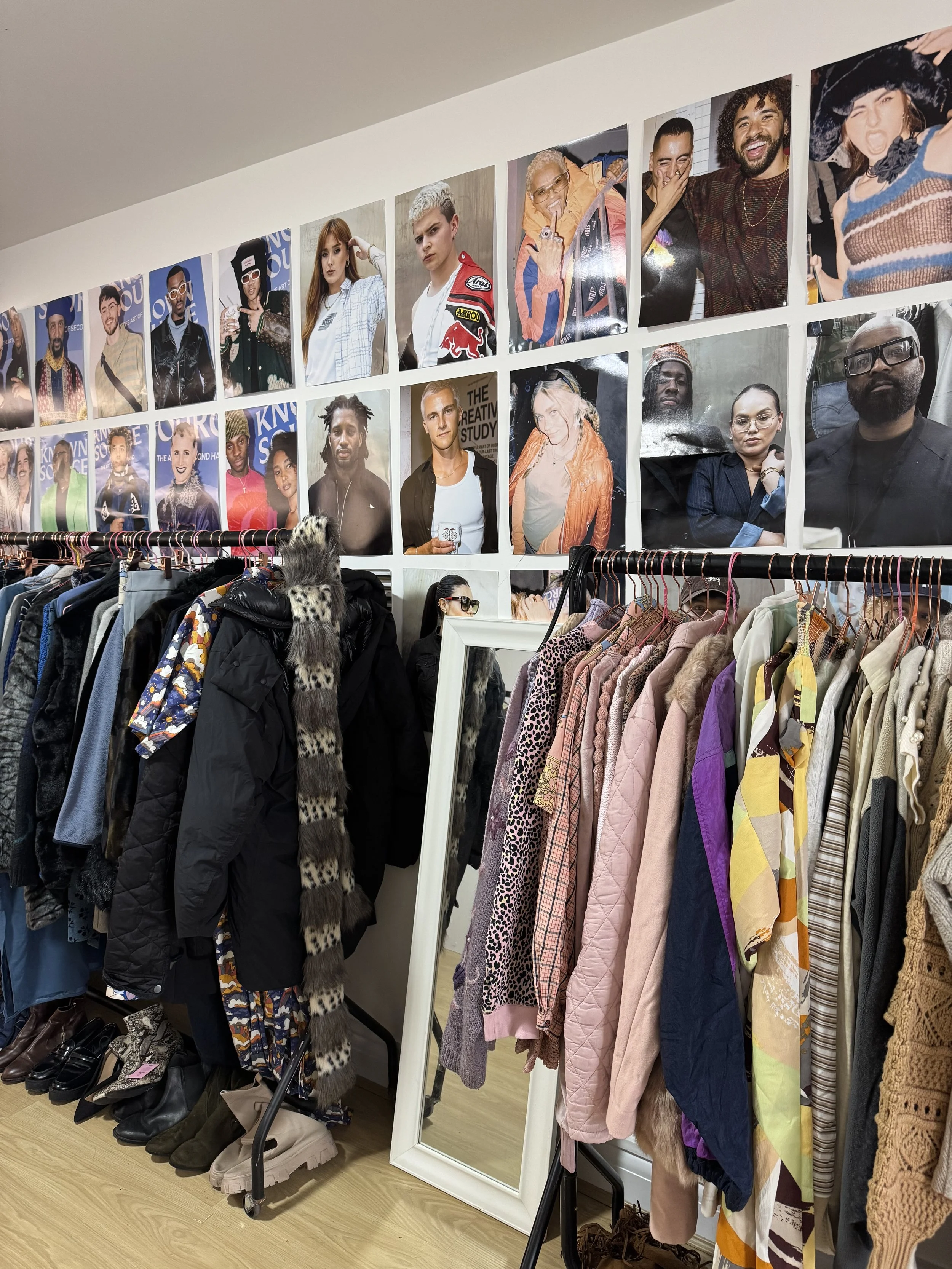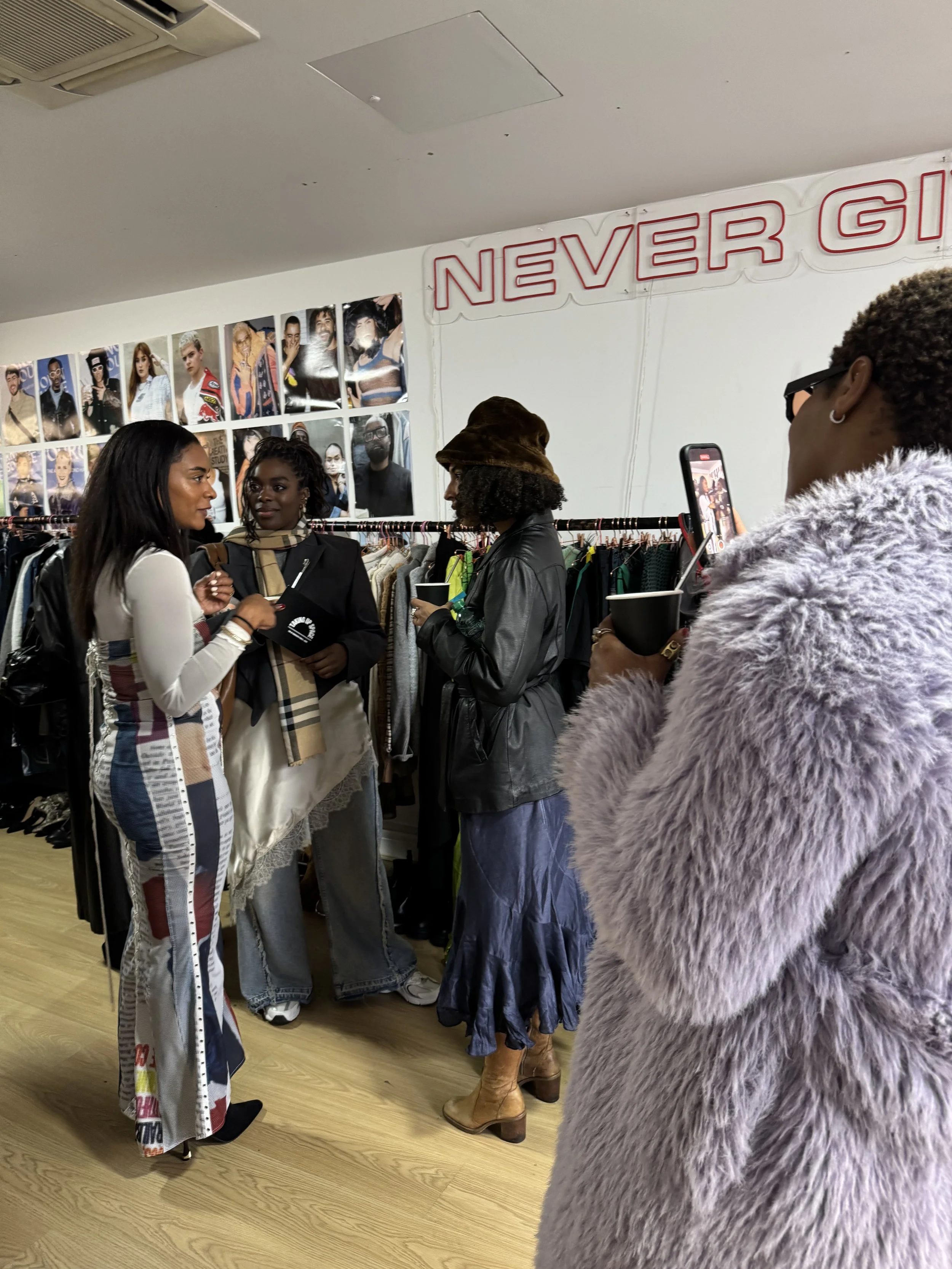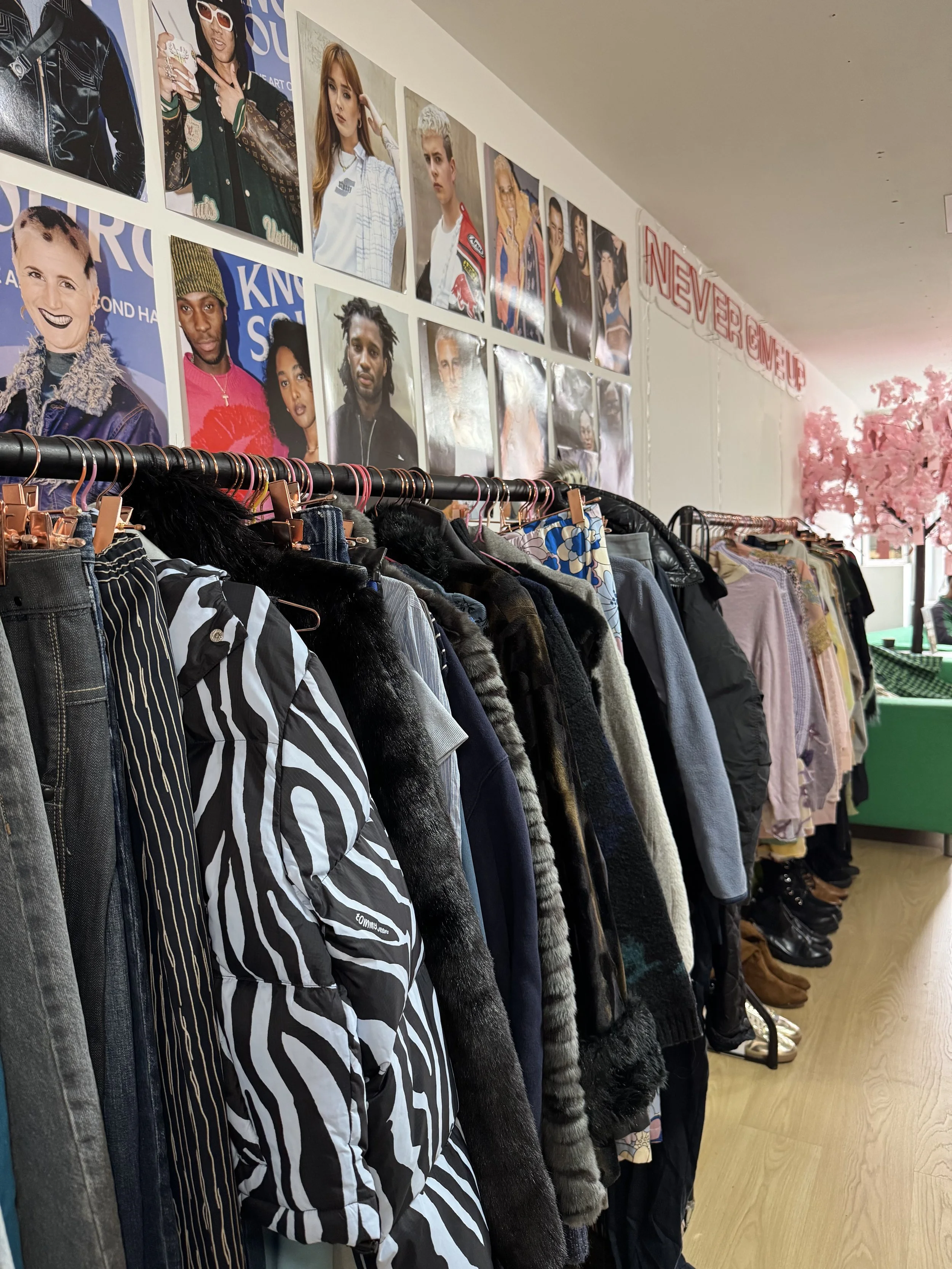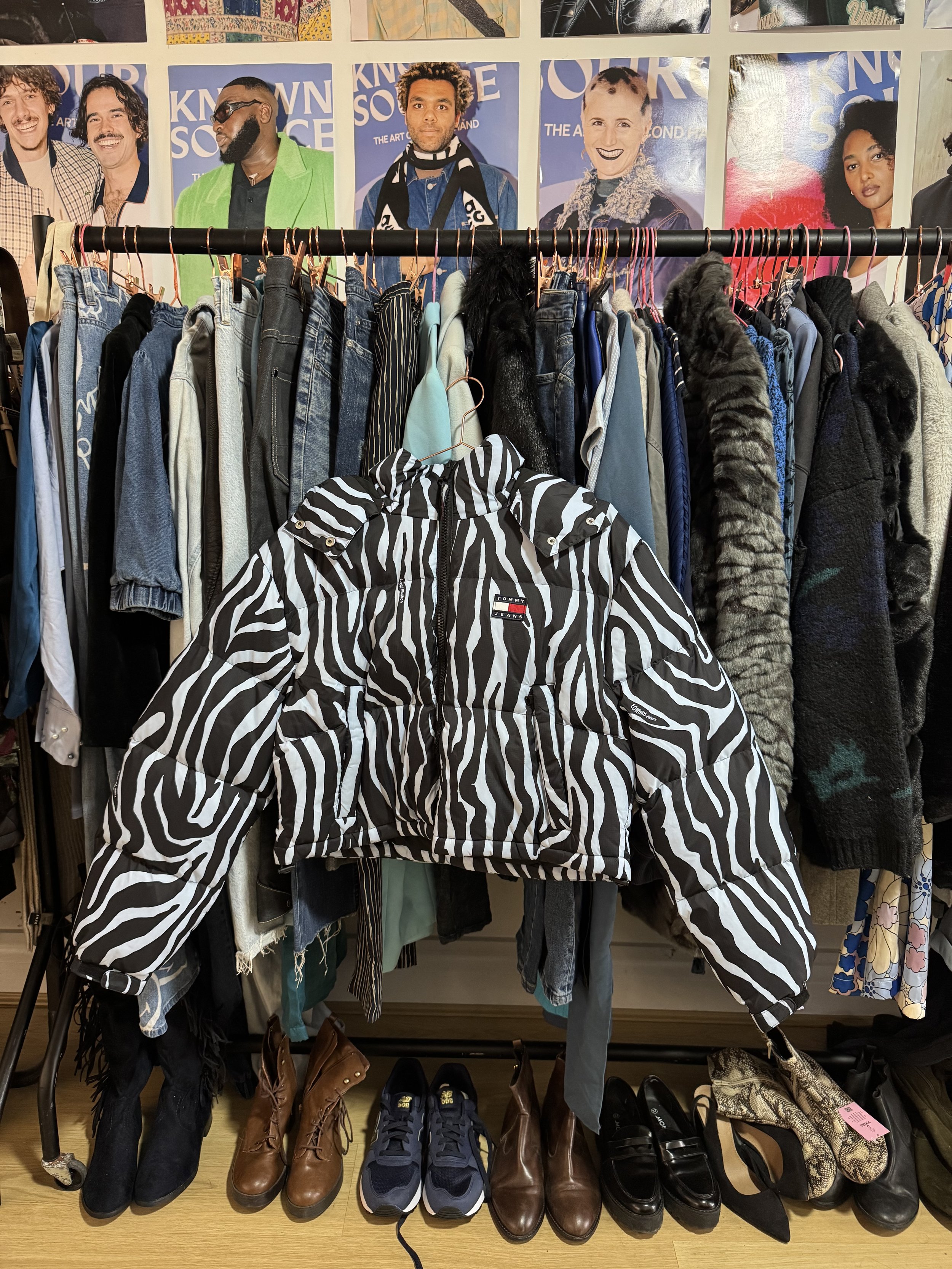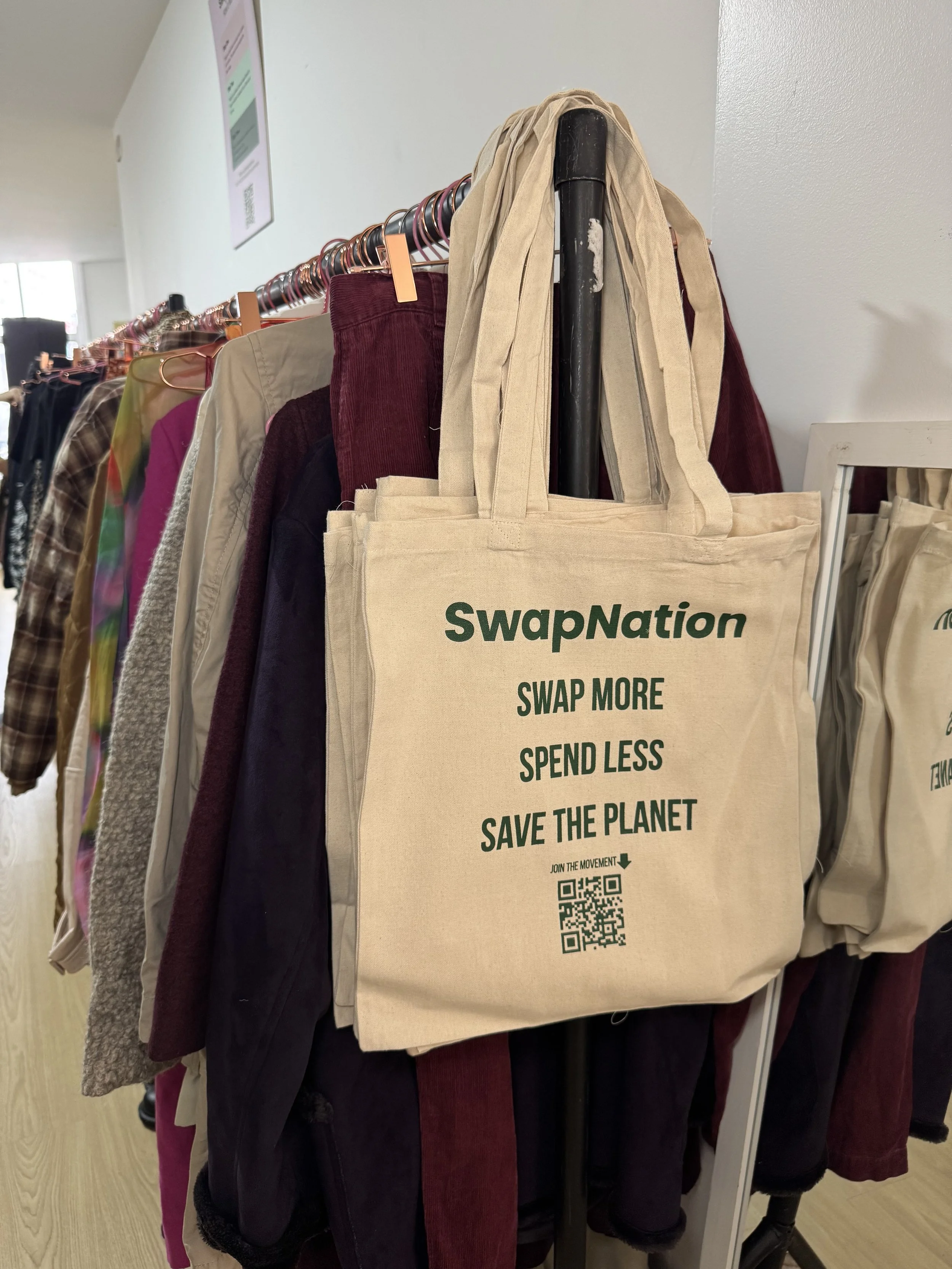How Taking Up Space Pop-up Celebrated Black Sustainable Fashion During BHM
Taking Up Space was a one-of-a-kind Black sustainable fashion pop-up during Black History Month in London. Since initiatives highlighting Black voices across industries peaked in 2020-2021, then went quiet, this cultural moment served as a powerful reminder of the essential contributions Black communities have made to fashion's sustainability conversation.
Three organisations—The Fashion Blueprint, SwapNation and Ndaane—each working towards a fairer fashion industry in their own distinctive ways, partnered with Known Source, a London-based collective of secondhand specialist 'dealers', to bring this vision to life and spotlight voices that the industry too often overlooks.
Hosted at Known Source's store in Mayfair, London, on October 25-26th during Circular Economy Week, Taking Up Space was a joyful invitation to shop more consciously centered on Black heritage, creativity, and innovation.
“Black voices have often been excluded from sustainability conversations, despite being at the forefront of tackling textile waste colonialism, through creative resourcefulness and style innovation for generations.”
“This event is about reclaiming that narrative, celebrating our contribution and shaping the future of fashion together.”
“We’re showcasing our thoughtful approach to fashion, one that honors generational practices while embracing new alternatives and invites others to engage with style with more intention.”
The two-day event celebrated Black-owned sustainable fashion labels and businesses through multiple experiences: a brand selection exclusively curated by Ndaane, upcycled pieces by Kantamanto market designers brought by The Fashion Blueprint, a swap shop powered by SwapNation, and occasionwear pieces selected by rental platform Kiraa. Programming also included a panel talk, documentary screening, and textile workshops.
The event kicked off with a brunch catered by Just Eat before moving into DJ sets and social mixers that kept the energy high throughout both days.
Brand Edit by NDAANE
Featuring London-based Revival London, Dahomey Paris, and Studio Silué, alongside Cotonou's FARE, the selection highlighted artisanal craftsmanship and upcycling artistry that speak a common creative language across continents.
Kantamanto Upcyclers Selection by THE FASHION BLUEPRINT
Featuring reworked pieces by designers from Kantamanto Upcyclers Association—as part of their ongoing campaign to raise awareness of textile waste colonialism and directly support artisans from the Global South. Including designers Alpha Costume, Kofi Heller, Rows Ambition, Calcul, Kala Blaq, and Martinson Clothing, alongside an exclusive selection of pieces by London-based British-Ghanaian brand Pikin Universe.
Fashion Rental by Kiraa
Bringing a curated selection of standout rental pieces available on their platform, Kiraa is making sustainable fashion sexy! Including intricate designs from labels such as Seta the Label and Onalaja.
Swap Shop by SwapNation
Offering a curated selection of contemporary and designer pieces for attendees to exchange and take home.
Panel Talk
Titled "Woven with Pride: Black Designers, Culture, and Resistance," the conversation between Beatrice Korlekie Newman, founder of Korlekie, Ismaël Silué, founder of Studio Silué, Farid Hounkponou, founder of Dahomey Paris, and moderator Sabrina Grant, TV presenter and sustainable stylist, explored the founders' journeys building slow fashion brands rooted in African heritage, craftsmanship, and cultural pride while navigating Western fashion landscapes.
Textile Upcycling Workshops
Two hands-on workshops offered creative approaches to sustainable fashion. Dani Dawkins guided participants through denim upcycling as a form of self-expression, while Pikin Universe facilitated textile art that drew on collective heritage through Adinkra symbols.
Documentary Screening
The event concluded with a special screening of The Threads of Resilience documentary by Frida Nakarma Lidbom followed by a Q&A with Style and Sustain. Attendees discussed the complexities of waste colonialism in the Global South, individual actions to reduce waste, and the need for a fairer fashion system.
Taking Up Space proved that Black voices aren't just part of the sustainability conversation—they've been leading it all along. Whether through practices passed down for generations or new ways to engage with style, the pop-up brought festival energy and showed what fashion can be when community and purpose come first. We can’t wait for the next one!

